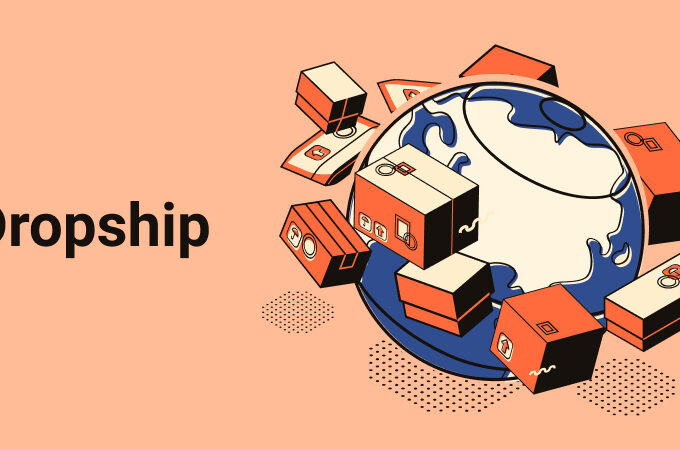
CBN vs CBD: What’s the Difference?
CBN and CBD are both similar and different in many ways. Here is everything you need to know about the difference between CBN vs CBD.
Cannabis has been a hot topic ever since the legalization of medical marijuana in 36 states and CBD products legalized in the remaining 14 states.
Cannabis is a complex plant with well over 400 compounds. Some of these compounds have profound effects on the body, especially THC and CBD.
CBD has been of particular interest because of its many health benefits and the plethora of CBD products, including topicals, oils, and snacks, and much more. CBN, CBD’s lesser-known cousin, is giving CBD a run for its money.
The CBN vs CBD debate has been a contentious subject among marijuana enthusiasts countrywide. While each compound has its own set of benefits, some argue that one is better.
From a layman’s perspective, it would seem that CBD is the better compound, judging by its popularity and prevalence. However, some experts and avid marijuana users would beg to differ.
In today’s post, we’ll be going deeper into these two cannabis compounds to determine what makes them so different.

What Is CBD?
CBD or cannabidiol is a cannabinoid found in the cannabis plant. It forms one of the four major compounds in the cannabis plant, alongside THC.
THC binds with CB1 receptors in the endocannabinoid system, conferring euphoria feelings. CBD has a more soporific effect on the body.
After THC, CBD is the second most abundant compound in the cannabis plant. The 2018 Farm Bill permitted the sale and distribution of hemp across the country. Keep in mind that hemp is cannabis with less than 0.3% THC by weight.
The 2018 legislation led to a boom of hemp-derived CBD products that particularly flooded the health and wellness market. The move also saw numerous CBD food products enter the food market.
CBD has become so popular that experts project the CBD market will be worth a staggering $13.19 billion by 2024.
What Is CBN?
CBN, or cannabinol, is a type of cannabinoid found in the cannabis plant. Both CBD and CBN are cannabinoids but have different chemical structures. Please note that CBN, cannabinol, is a single compound, while cannabinoid refers to a group of compounds found in the cannabis plant.
CBN is less abundant than CBD, but just like CBD, it has zero intoxicating effects. Like THC, it also binds with CB1 receptors to produce various side effects on the body. CBN has no known side effects, although more research is needed to verify this claim.
Since CBN is a result of internal processes within the plant, it’s difficult to create cannabis strain with high CBN content. In fact, scientists have had to synthesize CBN for their studies.
How much CBN a plant produces depends on a couple of factors, including:
- The amount of THC in the plant
- How much time the plant has been exposed to light and heat
- The soil the plant grew in
As mentioned above, CBN binds with CB1 receptors, just like THC. However, its effects on the CB1 receptors are lesser as compared to THC. People sensitive to THC may notice mild psychoactive effects when they consume CBN. Fortunately, most CBN for sale in the marketplace contains less than 0.3 percent THC.
Benefits of CBN Vs CBD
Both CBN and CBD promote well-being and health when consumed. As a result, the two compounds are very popular in the medical spheres. Let’s explore some benefits of these two compounds.

Benefits of CBD
Although research on CBD is still quite limited, it has been lauded by the medical community for its many health benefits. Here are a few benefits of CBD:
Helps Improve Sleep Quality
As mentioned earlier, CBD has a sleep-inducing effect, making it great for treating sleeping conditions like insomnia and sleep apnea. There’s a lot more research needed to substantiate this, but the anecdotal evidence is overwhelming.
A study involving 72 adults who experienced poor sleep found that sleep quality improved in 66.7% of the test sample after using CBD. Many people also claim that taking a few droplets of CBD oil before bed helps them sleep better and wake up fully energized for the day.
If you’re having trouble sleeping at night, then maybe what you need is a healthy dose of CBD.
Reduces Anxiety
Anxiety affects a whopping 40 million adults across the country. CBD may help manage anxiety in people with anxiety disorders because it changes the way receptors in your brain react to serotonin.
Serotonin is a chemical produced in the body that regulates our mood and engenders well-being and happiness. A study concluded that 79% of participants reduced their anxiety scores when they used CBD. Their anxiety scores remained the same or reduced with continued use of CBD.
Most people use CBD to calm themselves down before important events. For instance, a study showed that taking 600mg of CBD before speeches helped people with social anxiety deliver their speech confidently.
CBD also reduces anxiety in animals because it helps:
- Reduceheartrate
- Decrease stress levels
- Improving sleep quality which makes for better days
- Mitigating symptoms of PTSD
The following are ways CBD can help cure anxiety or reduce its symptoms. In fact, nowadays, psychiatrists might recommend a CBD strain to help treat anxiety in severe cases.
Reduces Seizures
CBD helps reduce seizures in people with epilepsy. In 2018, the FDA approved the use of epidiolex, a drug that contains CBD, to cure epilepsy in infants. The drug has proven effective in treating rare forms of epilepsy characterized by intense seizures that affect individuals from birth.
That said, not much is known about whether CBD can mitigate seizures outside these rare forms of epilepsy. However, research suggests that CBD can help enhance the effect of anti-seizure medication. This doesn’t only make the anti-convulsant more effective; it also makes the drug last longer.
Helps Relieve Pain

CBD affects certain parts of your brain that help reduces pain. Studies show that CBD has certain analgesic and anti-inflammatory properties that help manage pain. This makes the compound very useful in treating pain as a symptom of chronic conditions like cancer.
CBD is also useful in managing pain after surgeries. For instance, patients who used CBD to reduce pain after a kidney transplant experienced complete pain reduction.
Treating Cancer
As mentioned above, CBD is used to managed pain associated with certain chronic conditions. CBD helps treat cancer by mitigating certain symptoms of the conditions like pain and nausea. Apart from reducing pain and cancer, studies show that CBD may have some anti-cancer properties.
CBD may help stifle the growth of tumors, accelerate the death of tumor cells, and eliminate them from the body.
It’s a Neuroprotective
Neurodegenerative conditions are conditions characterized by cognitive deterioration because of the death of neurons in certain regions of the brain. CBD helps protect the brain from neurogenerative disease by:
- Supporting antioxidants that revitalize the brain
- Reducing inflammation in the brain
- Reducing depression and anxiety
- Accelerate recovery of damaged neurons
That said, CBD can help protect from or mitigate the symptoms of degenerative diseases like:
- Alzheimer’s disease
- Parkinson’s disease
- Multiple Sclerosis
- Huntington’s disease
These are just a few of the degenerative diseases that CBD can help treat. Most patients take CBD to supplement their usual medication for the best results.
CBD Side Effects?
Despite the many health benefits of CBD effects, it has a few side effects when consumed in excess.
Most people can tolerate CBD without any significant side effects. However, some people may experience the following side effects when they consume CBD.
- Diarrhea
- Dry mouth
- Fatigue
- Drowsiness
Note that these side effects don’t apply across the board. While some people may experience one or two side effects, others may experience all of them. Some people don’t experience any side effects altogether.
Benefits of CBN
Like CBD, CBN has tons of health benefits, few that are similar to those of CBD. Some of the benefits of CBN include:
Stimulates Appetite
CBN can help stimulate appetite in people suffering from eating disorders like anorexia. It’s also used to increase appetite in patients suffering from conditions that suppress their appetites.
This is actually the opposite of what CBD does. CBD suppresses appetite while CBN stimulates it.
Is Antibiotic
Research into CBN found that the cannabinoid has antibiotic properties and is an excellent solution for treating MSRA. MSRA is a disease caused by a type of staphylococcus bacteria that leads to multiple infections in various parts of the body.
MSRA is a difficult disease to treat because the bacteria is resistant to most antibiotics. However, drugs with CBN have proven effective in eliminating the bacteria.
Help Improve Sleep

CBN is a sedative that can help promote quality sleep.
Like CBD, CBN can also help address sleeping conditions. However, further studies are needed to establish whether CBN has any actual sedative effects conclusively. However, current research shows that the combination of THC and CBN has strong sleep-inducing effects.
Helps Fight Cancer
Promising evidence suggests that CBN helps slow down or stop the growth of cancerous cells in the body. CBD is one of the several cannabinoids that have shown this anti-cancer behavior. Scientists found that it could decrease the size of a tumor in one form of lung cancer.
Relieves Pain
CBN has excellent anti-inflammatory pain-relieving properties. It interacts with specific neurons that influence how you feel and perceive pain.
Therefore, CBN makes an excellent remedy for addressing migraines, inflammation, and nerve damage. CBN has greater pain-relieving properties when combined with THC.
Promotes Bone Growth and Healing
CBN can activate stem cells to promote the production of new bone matter.
CBN can accelerate the healing of bone fractures and also reverse bone loss in aging individuals. As such, scientists have taken a keen interest in CBN as a potential treatment for a degenerative bone disease like osteoporosis, among others.
May Treat Glaucoma
Research shows that CBN may be effective in treating glaucoma. It could be an integral part of glaucoma therapy.
What Makes CBD and CBDN So Different
As mentioned earlier, CBN and CBD are both cannabinoids found in the cannabis plant. While that much is clear, what makes these two compounds so different?
Apart from the different effects on the body, here are a few other differences between CBN and CBD.
Appetite Stimulation: As mentioned above, CBN stimulates appetite while CBD suppresses it. Instead of improving, CBD worsens eating disorders.
Synthesis: You can produce high CBD strain marijuana through selective cross-breeding of marijuana strains. You can’t do the same for CBN because the amount of CBN depends on the plant’s exposure to light, heat, and age.
Physiological effects: CBN and CBD have different physiological effects on the body. However, they do share a lot of physiological effects on the body.
Pshcoactivity: For sensitive individuals, CBN may produce a mild high. CBD has no psychoactive effect at all.
What Makes CBN and CBD Similar
Although CBN and CBD are essentially different, they do share a couple of similarities. Here’s what makes CBN and CBD similar:
Both are cannabinoids: As we’ve mentioned time and time again, both CBD and CBN are cannabinoids.
Both affect THC: THC is the psychoactive compound in cannabis that causes euphoria or the sensational “high.” CBD is known to suppress some of the not so pleasurable effects of THC, like anxiety and paranoia. On the other hand, CBN contributes to the “high” to produce a gentle high that some people desire.
For the greatest effect, people opt for a combination of both products, or sometimes a combination of CBD and THC.
Come see more here if interested.
CBN vs. CBD: The Verdict Is Yours

When it comes to CBN vs CBD, it seems like there’s no clear winner. Choosing between the two can be a tad overwhelming, so why not take both? You can buy products that combine the two products or buy both CBN and CBD products.
For more informative content, check out the other articles on the site.




